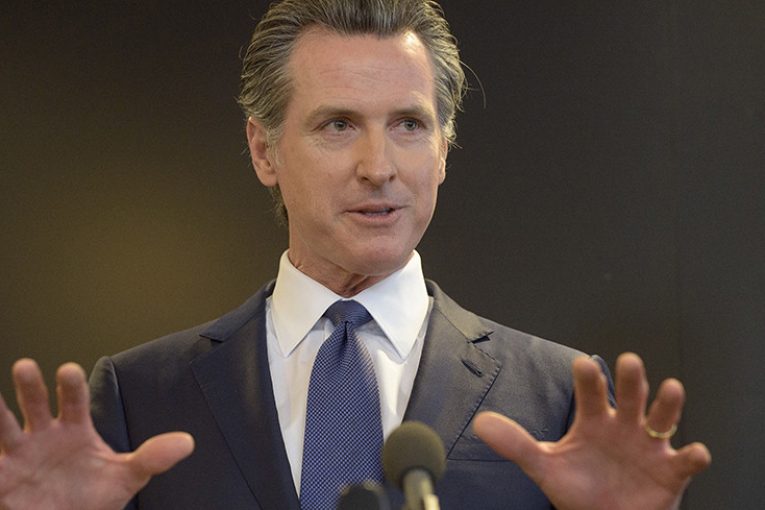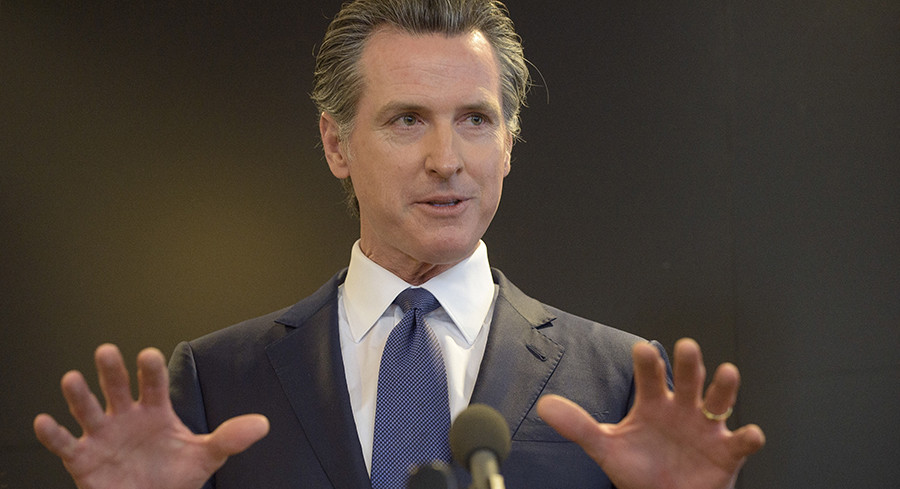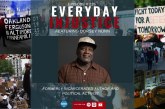

By Josué Monroy
NEW YORK – The American Civil liberties Union (ACLU) has launched an expansive campaign seeking to release 50,000 people from state prisons over the next five years by working with state governors to grant clemency to incarcerated individuals the ACLU says are unjustifiably imprisoned.
Announced in a press release this week, The Redemption Campaign – Embracing Clemency plans to run state-level campaigns aimed at putting pressure on state governors to make use of the clemency powers they wield in an unprecedented effort to reduce the nation’s incarcerated population.
“In the coming months, the ACLU will launch state-level campaigns to ensure governors use their clemency powers to release people in their states. This will include direct candidate engagement and voter education in upcoming gubernatorial races as well as mobilization of constituents in states across the nation,” reads the statement.
According to the ACLU, their initial efforts will focus on urging governors to release:
- People who, if convicted under current laws, would serve a lesser sentence than what they are currently serving;
- People convicted of drug distribution and possession offenses, regardless of underlying substance;
- People incarcerated for technical probation or parole violations; and
- Older incarcerated people.
Udi Ofer, Director of the ACLU’s Justice Division, stated, “The United States is in a mass incarceration crisis, and governors hold the key to fixing it. There is a long history of Republican and Democratic presidents and governors issuing categorical clemency to correct mistakes of the past. Yet during the tough-on-crime era, this powerful tool has been neglected. It’s time for  governors to use their existing powers to unilaterally undo the harms of the tough-on-crime era and forcefully confront a racist criminal legal system.”
governors to use their existing powers to unilaterally undo the harms of the tough-on-crime era and forcefully confront a racist criminal legal system.”
To coincide with the campaign’s launch, a livestreamed town hall event was held last Wednesday, featuring Cyntoia Brown Long and Jason Hernandez, two previously incarcerated individuals who received clemency and have become leading activists for criminal justice reform.
The event also featured Chesa Boudin, the progressive San Francisco District Attorney whose office is working to resentence cases with extreme sentences. Recently, Boudin reduced the sentence of a San Francisco man on death row to life with the possibility of parole. The town hall was held to discuss the need for leaders to recognize the power of clemency in correcting the harms caused by decades of mass incarceration.
The case of Cyntoia Brown Long is perhaps the most high-profile example of clemency in recent memory, as many celebrities and politicians called for Tennessee Governor Bill Haslam to commute her sentence.
Brown was sentenced to life in prison at age 16 for the murder of Johnny Michael Allen, a Nashville man who had solicited sex from Brown. On August 6, 2004, Allen picked up Brown in a parking lot and brought her to his home for a paid sexual encounter. Later that night, Brown shot Allen in the back of the head and robbed him of $172.
Brown testified that she felt threatened and intimidated by Allen, and shot him in fear for her life. She was tried as an adult and sentenced to life with the eligibility of parole at age 67. Her defense argued that she was forced into prostitution by a violent and abusive boyfriend, seeking leniency from the judge to no avail.
In late 2017, her case received national attention as celebrities such as Rihanna and LeBron James posted on social media calling for Brown’s release. The outcry got the attention of Governor Bill Haslam, who reduced her sentence to 15 years, and Brown was released from prison in August 2019. She is now an activist and author.
The case of Jason Hernandez became national news in 2013 after President Barack Obama commuted his sentence of life without parole for a non-violent drug offense, and he was released after 17 years in prison.
In 1998, Hernandez was sentenced to life without parole plus 320 years for drug-related offenses that he committed mostly as a teenager. The judge charged him with conspiracy to distribute crack cocaine and found it appropriate to dole out that sentence for a first-time offender. Hernandez was 21 years old when he was sent to a maximum-security prison.
While in prison, Hernandez took paralegal courses and became a jailhouse attorney. He also founded Crack Open the Door, an organization that assists inmates applying for clemency. Hernandez applied for clemency himself, and wrote President Obama a letter asking for forgiveness and a commutation of his sentence in 2011. It worked, and in December 2013 Obama commuted his sentence to 20 years. Hernandez was released in August 2016. He continues to advocate for inmates seeking clemency.
Brown and Hernandez are rare examples of successful petitions for clemency, with numbers of incarcerated individuals petitioning each year to no avail.
A core issue that The Redemption Campaign also addresses is the disproportionately high level of incarcerated people of color in the U.S. prison system.
They note that “[r]acial disparities in prison populations are rampant. Black and Latinx people make up 57 percent of the state prison populations despite comprising just 29 percent of the overall population, and those disparities exist across various convictions and sentences. Nearly 50 percent of people serving life sentences, and nearly 60 percent of people serving life without parole, are Black.”
The ACLU expects widespread support for the initiative, releasing a poll indicating 80 percent of voter’s support ending or shortening the prison sentences of certain people in prison. This includes 80 percent of Democrats, 73 percent of Republicans, and 81 percent of Independents.
Energized by the potential of the program, the ACLU is optimistic about the impact it will have in reducing the overcrowded prison system, stating:
“Freeing 50,000 people is readily achievable. Of the 1.3 million people in state prisons, nearly 165,000 people are over the age of 55, and the number of older incarcerated people continues to grow. Further, there are 280,000 people imprisoned for supervision violations as probation and parole have failed to divert people out of the system and have instead become primary drivers of the mass incarceration crisis.
“It is clear from any metric that far too many people are being harmed by the brutal excesses of the criminal legal system — serving sentences that serve no purpose other than to punish and degrade.”
To sign up for our new newsletter – Everyday Injustice – https://tinyurl.com/yyultcf9





